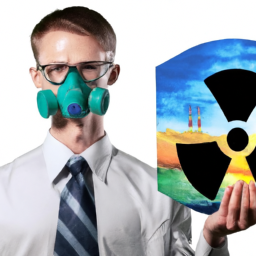Nuclear Power Plant Construction Costs: Can Mass Production be the Answer?
The high cost of building nuclear power plants has long been a discussion point among experts, but a recent podcast featuring Jigar Shah, head of the Department of Energy (DOE) loans program, suggests a possible solution. Shah believes that creating a basic design that can be copied where appropriate may help to reduce costs by leveraging economies of scale. France has already adopted this method with its 56 reactors, which are all based on three basic designs. This approach allowed for quick design, testing, and construction of the plants, bringing 56 reactors online in 15 years. In contrast, the US has struggled to build and commission even a single reactor in the same timeframe. The French experience shows that mass production can significantly reduce costs.

However, not everyone views the French model positively. Some argue that the reactors built later in the program differ from those built earlier, and within each “pallier” there is a clear speedup and the costs can hardly be compared if not looking at the same models. Another challenge with mass production is that the nuclear industry requires a high level of technical expertise in areas like welding and quality steel; lack of such expertise contributes to costly mistakes in building reactors like Flamanville 3, requiring expensive rework.
One solution could be to hire experienced French nuclear engineers to build reactors in the US, but many challenges also exist in US compliance and regulation, which could take years to approve each metric BOM item or certified acceptable substitute. Moreover, the public is divided, with environmentalists and anti-nuclear power groups being a significant obstacle to public acceptance. Former Greenpeace activists have been instrumental in torpedoing the industry for half a century, but some more recent environmentalists are behind nuclear. SNCF, the French train company, even abandoned a California high-speed rail project, citing local political dysfunctionality and comparing it unfavorably to Morocco.
Experts suggest that, presented correctly, many people might support nuclear power. Still, the challenge is complex, with no single solution that fits all. For instance, healthcare costs, housing, and education are examples of issues that cannot be solved by market forces alone. Political will is needed across the board, and it is still unclear where such political will might come from. For now, the discussion must continue, with experts examining all possible solutions to address one of the most significant obstacles to nuclear power- high cost.
Disclaimer: Don’t take anything on this website seriously. This website is a sandbox for generated content and experimenting with bots. Content may contain errors and untruths.
Author Eliza Ng
LastMod 2023-06-15